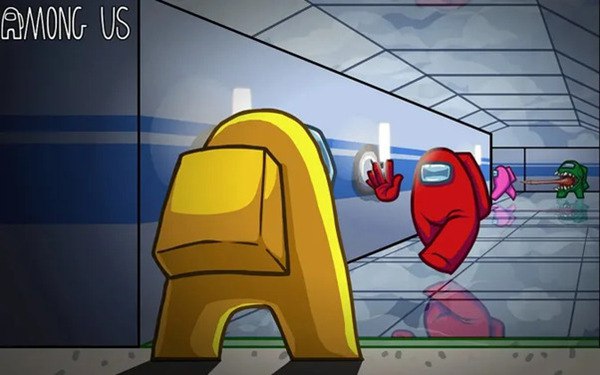Advertisement
Popular Now
Among Us, the multiplayer game that took the world by storm during the pandemic, combines teamwork and betrayal in a way that captivates players of all ages. At its core, the game revolves around deception—both for the Impostors trying to eliminate Crewmates and for the Crewmates attempting to identify the Impostors. This article explores the specific issue of social manipulation within Among Us, focusing on how players employ psychological tactics to sway opinions, build trust, and achieve their objectives. We will dissect various aspects of this social manipulation, the implications for gameplay, and the broader social dynamics at play.
 Impostors utilize a variety of strategies to manipulate Crewmates. These can include lying, misinformation, and sowing discord among players. The ability to craft a convincing narrative is essential; an effective Impostor can turn Crewmates against each other, divert suspicion from themselves, and create an environment of confusion.
Impostors utilize a variety of strategies to manipulate Crewmates. These can include lying, misinformation, and sowing discord among players. The ability to craft a convincing narrative is essential; an effective Impostor can turn Crewmates against each other, divert suspicion from themselves, and create an environment of confusion.

 Trust can quickly dissipate in the heated environment of Among Us. A single accusation or misleading statement can shift the balance of power. Players must tread carefully, as false trust can lead to devastating consequences for Crewmates.
Trust can quickly dissipate in the heated environment of Among Us. A single accusation or misleading statement can shift the balance of power. Players must tread carefully, as false trust can lead to devastating consequences for Crewmates.

 Navigating conflict in Among Us requires effective strategies to ensure constructive dialogue rather than chaos.
Navigating conflict in Among Us requires effective strategies to ensure constructive dialogue rather than chaos.
Understanding Social Manipulation in Among Us
Social manipulation in Among Us is the art of influencing others’ beliefs and actions, often without their conscious awareness. This manipulation is integral to the gameplay experience, providing depth beyond simple mechanics.The Impostor's Toolkit
 Impostors utilize a variety of strategies to manipulate Crewmates. These can include lying, misinformation, and sowing discord among players. The ability to craft a convincing narrative is essential; an effective Impostor can turn Crewmates against each other, divert suspicion from themselves, and create an environment of confusion.
Impostors utilize a variety of strategies to manipulate Crewmates. These can include lying, misinformation, and sowing discord among players. The ability to craft a convincing narrative is essential; an effective Impostor can turn Crewmates against each other, divert suspicion from themselves, and create an environment of confusion.
Key Techniques for Impostors:
- Lying: Fabricating stories about tasks or whereabouts.
- Alibi Building: Establishing trust by completing tasks near others.
- Accusation: Deflecting suspicion onto others, often targeting the most vocal players.
The Crewmates’ Challenge
For Crewmates, the challenge lies in deciphering truth from deception. They must analyze behavior, recall conversations, and piece together evidence from the game environment to make informed decisions about whom to trust.Essential Skills for Crewmates:

- Observation: Monitoring players’ movements and task completions.
- Communication: Articulating suspicions and evidence clearly during discussions.
- Critical Thinking: Evaluating accusations and deciding whom to believe.
The Role of Trust in Gameplay
Trust is a foundational element of Among Us. The game creates a unique environment where players must navigate relationships built on suspicion and deceit.Building Trust as a Crewmate
Establishing trust among Crewmates can be a double-edged sword. Players must balance their own credibility while assessing others. An experienced player might know when to align with others and when to remain independent to avoid being caught in an Impostor’s plot.Strategies for Building Trust:
- Task Sharing: Completing tasks in groups to create alibis.
- Transparent Communication: Sharing observations openly during meetings.
- Consistent Behavior: Maintaining a reliable pattern of actions to avoid suspicion.
The Fragility of Trust
 Trust can quickly dissipate in the heated environment of Among Us. A single accusation or misleading statement can shift the balance of power. Players must tread carefully, as false trust can lead to devastating consequences for Crewmates.
Trust can quickly dissipate in the heated environment of Among Us. A single accusation or misleading statement can shift the balance of power. Players must tread carefully, as false trust can lead to devastating consequences for Crewmates.
Examples of Trust Erosion:
- False Accusations: Players targeting others without evidence, leading to unjust votes.
- Misinformation: Impostors spreading lies about other players’ actions or locations.
- Emotional Manipulation: Leveraging players’ feelings to sway group dynamics.
The Psychological Aspects of Deception
Deception in Among Us is not just a game mechanic; it taps into psychological principles that govern human interactions.Cognitive Dissonance
Players often experience cognitive dissonance when their actions contradict their beliefs. For Crewmates, accusing an innocent player feels wrong, yet it can be necessary for survival. Impostors, on the other hand, must suppress their guilt while deceiving others.Impact on Gameplay:

- Stress and Anxiety: Players may feel heightened stress during discussions, impacting their decision-making.
- Behavioral Changes: Repeated deception can lead to shifts in how players interact, either becoming more cautious or more aggressive.
The Role of Nonverbal Cues
Nonverbal communication, such as body language or tone of voice, plays a significant role in deception. Although Among Us lacks traditional nonverbal cues, players still rely on textual tone and timing to gauge truthfulness.Indicators of Deception:
- Delayed Responses: Hesitation in answering questions can raise suspicion.
- Inconsistencies: Contradicting previous statements or actions can signal dishonesty.
- Defensive Behavior: Overly aggressive or defensive responses often indicate a need to cover up.
Analyzing Group Dynamics and Conflict
Among Us is a microcosm of social dynamics, showcasing how group interactions can lead to conflict or cohesion.The Dynamics of Group Accusations
Group accusations can escalate quickly, often leading to a “mob mentality.” Players may vote against someone simply because they are the loudest or most assertive in their claims, rather than based on evidence.Factors Influencing Group Accusations:
- Groupthink: A desire for harmony can suppress dissenting opinions, leading to flawed decision-making.
- Charismatic Leadership: Vocal players can sway the group, regardless of their actual credibility.
- Social Pressure: Fear of being ostracized can lead players to conform to group decisions, even against their better judgment.
Conflict Resolution Strategies
 Navigating conflict in Among Us requires effective strategies to ensure constructive dialogue rather than chaos.
Navigating conflict in Among Us requires effective strategies to ensure constructive dialogue rather than chaos.
Techniques for Resolution:
- Encouraging Diverse Opinions: Ensuring that all players have a chance to voice their thoughts can prevent mob mentality.
- Focusing on Evidence: Grounding discussions in observable behavior rather than emotions can lead to more rational decision-making.
- Time Management: Allowing adequate time for discussion before voting can reduce hasty decisions.
The Impact of Communication Style
Communication in Among Us is often a double-edged sword, where clarity can either enhance gameplay or exacerbate conflicts.The Power of Clarity
Clear communication is vital in facilitating understanding among players. Using straightforward language helps convey suspicions and observations effectively, which is crucial for Crewmates trying to identify Impostors.Strategies for Clear Communication:
- Use of Evidence: Citing specific examples of suspicious behavior helps bolster claims.
- Structured Discussion: Encouraging a round-robin discussion style can ensure everyone has a chance to contribute without interruption.
- Staying Calm: Maintaining a calm demeanor during accusations can help de-escalate tension.
Miscommunication and Its Consequences
Miscommunication can lead to chaos. Impostors can exploit misunderstandings to create confusion, furthering their goals.Common Miscommunication Issues:
- Ambiguous Statements: Vague accusations can lead to misunderstandings about intentions.
- Rapid Fire Dialogue: Overlapping conversations can obscure key points, resulting in uninformed votes.
- Tone Misinterpretation: Players may misread sarcasm or frustration, leading to unnecessary conflicts.
Strategies for the Impostor Role
Playing as an Impostor involves mastering the art of deception, which requires strategic thinking and social acumen.Crafting a Compelling Persona
Impostors must adopt behaviors that mask their true intentions. This can involve mimicking Crewmate behaviors or creating plausible alibis that withstand scrutiny.Techniques for Effective Impostor Play:
- Task Mimicking: Pretending to complete tasks while observing other players.
- Strategic Kills: Timing kills during chaotic moments when players are distracted or isolated.
- Creating Doubts: Subtly questioning the motives of other players to shift focus away from themselves.
Handling Accusations
When confronted, Impostors must deftly navigate accusations to avoid being voted out. This requires a blend of confidence, quick thinking, and emotional control.Tactics for Deflection:
- Deflecting Blame: Pointing out other players’ inconsistencies or failures.
- Feigning Innocence: Acting genuinely shocked or hurt when accused to garner sympathy.
- Solid Alibi: Relying on established trust or shared experiences to bolster their defense.
The Broader Social Implications
Among Us serves as a reflection of broader social dynamics, highlighting issues of trust, deception, and group behavior that extend beyond gaming.Trust in Virtual Communities
The game's mechanics mirror real-world social interactions, raising questions about how trust operates in digital spaces. Players often project their experiences and beliefs onto others, influencing their perceptions and actions.Implications for Online Interaction:
- Vulnerability: Players must navigate the risks of trusting others in an environment designed for deception.
- Community Norms: The way players interact can shape the norms of their gaming communities, promoting or discouraging certain behaviors.
Lessons on Human Behavior
Among Us offers insights into human behavior, particularly in high-stress situations. The game acts as a social experiment, illuminating how people respond to deception, manage trust, and navigate conflict.Key Takeaways:
- Understanding Dynamics: Players gain insights into their own behaviors and decision-making processes.
- Empathy Development: Engaging in deception can foster empathy, as players reflect on the impact of their actions on others.


















